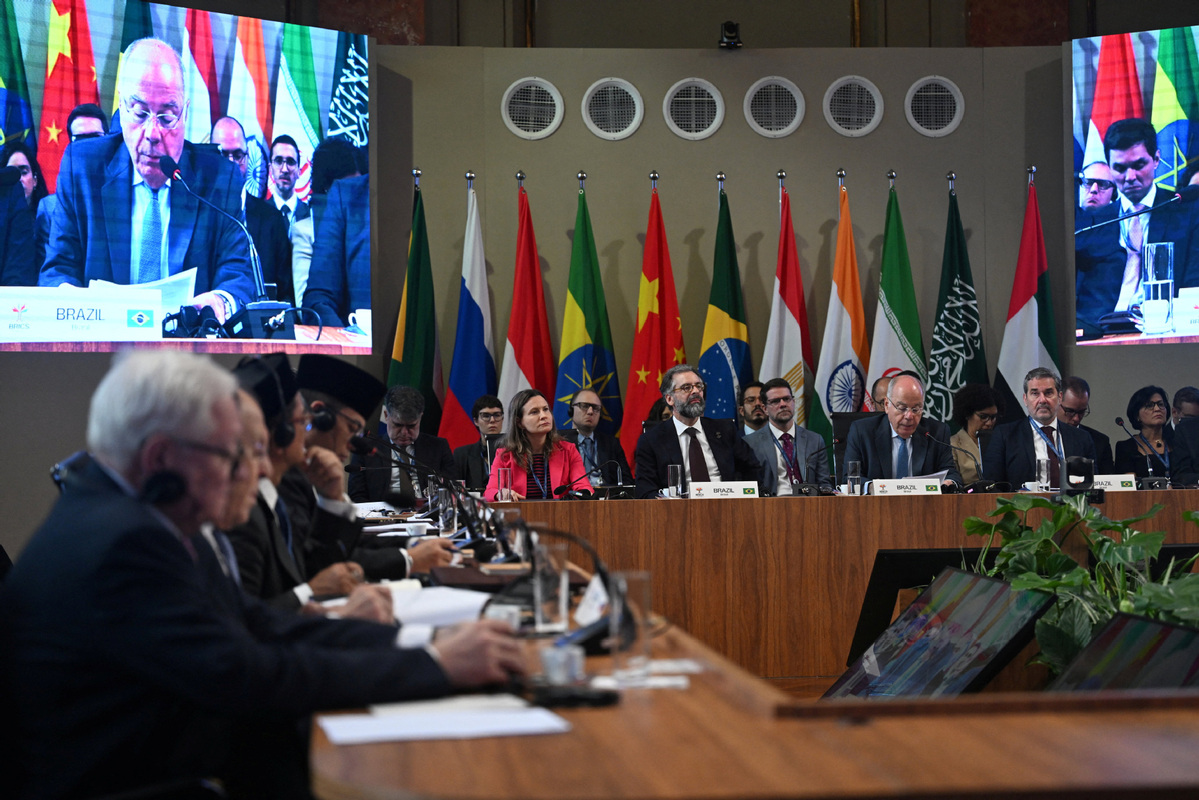
Although the BRICS countries have steadfastly opposed unilateralism since the group was founded, some Western media have still tried to portray the BRICS foreign ministers' meeting in Rio de Janeiro on Monday as the grouping's attempt to forge a united front against the United States. They are trying to create the impression that it is the US that is being targeted by a gang of gangsters rather than the other way round.
Even before the US launched its "reciprocal tariff" war on April 2, the BRICS grouping of major developing countries came under fire from the White House, which threatened a punitive 100 percent tariff on its members if the bloc moves ahead with a single currency to replace the weaponized dollar in trade relations between its members.
READ MORE: Wang: BRICS countries should serve as pillar of peace, development
It is natural that the BRICS members should discuss the US assault on global trade and seek a coordinated response. They are all at a critical stage of their respective development and heavily reliant on exports. They need stable global industry and supply chains and a predictable external development environment.
Even before the US' tariff war, it has been a constant pursuit of BRICS to promote a fair and just world through reform of the global governance institutions and inclusive economic globalization. Striving to maintain stable global industry and supply chains and oppose hegemony in world affairs is not only in their interests but also that of the Global South as a whole.
It should also be pointed out that the other key agenda of the meeting was to prompt a shared position on climate finance, with Brazil hosting the United Nations climate summit in November, as the BRICS countries are working together to help transform the developed economies' pledge to help developing countries finance the fight against climate change and the energy transition from words to deeds.
As Chinese Foreign Minister Wang Yi said at the meeting, the law of the jungle where the strong prey on the weak is now being openly applied, the coercion and bullying of the US is no longer disguised, and its undermining of the foundation for the development of international relations can be seen as a constant threat.
ALSO READ: No deal can be made without talking, and there's no talking without respect
Maintaining multilateral trade rules is now the most urgent issue. The essence of trade is complementary advantages and mutual benefits, not a calculation of who gains the most.
The US has benefited greatly from free trade for a long time, but now it is using tariffs as a hammer to distort the trade landscape to its liking. As Wang said, if countries choose to remain silent, compromise and retreat, it will only make the bully more aggressive.


